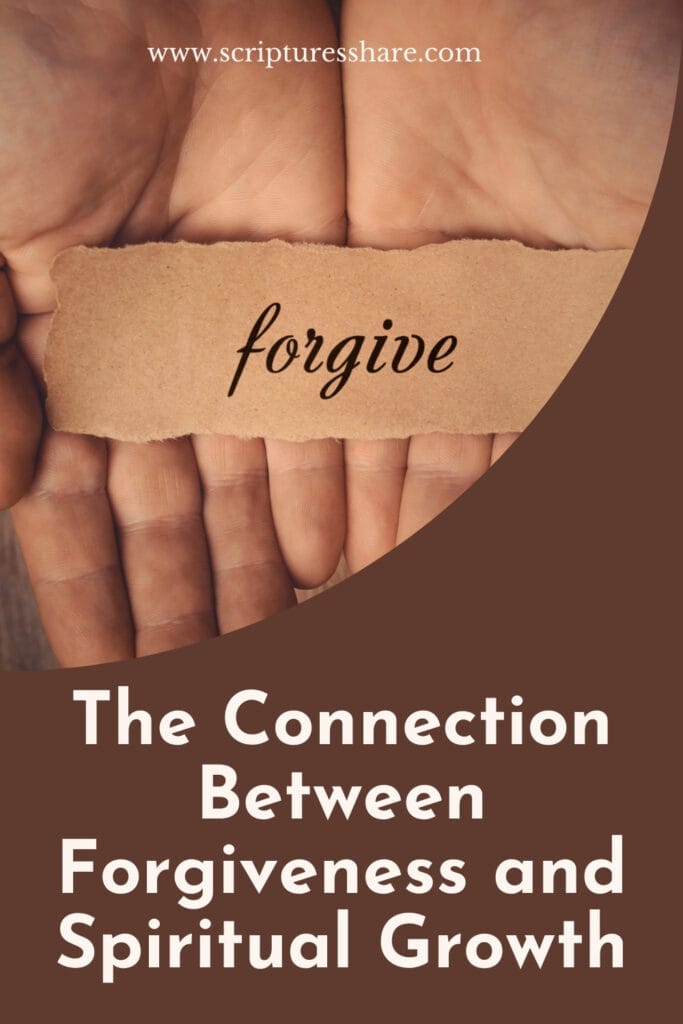No products in the cart.
The Connection Between Forgiveness and Spiritual Growth
This post contains paid and/or affiliate links. I make a small commission at no extra cost to you. Please see our Privacy Policy.
Forgiveness is a powerful tool in spirituality. It helps us heal and grow. By letting go of anger and resentment, we open our hearts to empathy and compassion.
The importance of forgiveness in spiritual growth cannot be overstated. It offers practical ways to embrace forgiveness.
Forgiveness: A Key Element in Spiritual Growth
Forgiveness is key to spiritual growth. Holding onto anger blocks our connection to ourselves and others.
Forgiveness brings empathy and compassion. It opens our hearts to love and beauty. By forgiving, we nurture our minds, bodies, and spirits.
The Transformative Power of Forgiveness
Forgiveness is good for our health. It lowers stress, boosts our immune system, and improves our well-being.
- Forgiveness reduces stress hormones like cortisol, which harm our health.
- Letting go of negative emotions through forgiveness brings peace and harmony.
- Forgiveness strengthens our relationships and fosters compassion.
Forgiveness leads to spiritual growth and transformation. It frees us from the past and opens new paths for personal and spiritual evolution.
“To forgive is to set a prisoner free and discover that the prisoner was you.” – Lewis B. Smedes
- This quote highlights how forgiveness liberates the soul and allows spiritual growth by releasing the burdens of resentment and anger.
Forgiving Oneself
Self-forgiveness is vital for spiritual growth. We all make mistakes. But by practicing mindfulness, we can let go of self-criticism and embrace self-compassion.
Self-forgiveness is a journey, not a goal. It takes time and effort. Regular self-forgiveness helps us develop a positive self-image, fostering growth and healing.

The Power of Mindfulness
Mindfulness helps us stay present without judgment. It makes us aware of our thoughts and emotions. This awareness helps us respond with compassion instead of criticism.
Embracing Self-Compassion
Self-compassion means treating ourselves with kindness and understanding. Instead of criticizing, we offer kindness, just as we would to a friend. Self-compassion recognizes our imperfections and our worthiness of love and forgiveness.
Seeking help from a therapist or counselor can support self-forgiveness. Professional guidance and a supportive community can encourage us on our journey to self-compassion.
Self-forgiveness is a journey that needs patience and love. It helps us grow and heal by letting go of blame. Let’s embrace self-forgiveness and walk the path of self-compassion together.
“Forgiveness is the key to unlocking the door of resentment and the handcuffs of hatred. It is a power that breaks the chains of bitterness and the shackles of selfishness.” – Corrie ten Boom
- Forgiveness is portrayed as a transformative act that not only nurtures spiritual growth but also fosters inner peace and freedom.
Forgiving Others
Forgiving others is key to our spiritual growth. It’s hard to let go of anger, but it’s freeing and rewarding. Holding onto anger only hurts us, stopping us from finding peace and growing.
Forgiveness frees us from pain and hurt, helping us move forward positively. It’s about empathy, compassion, and understanding. By forgiving, we free ourselves from anger and make space for healing and growth.
To forgive, try seeing things from others’ viewpoints. This helps us understand and feel for them. Focusing on now helps us let go of past hurts and forgive with an open heart.
Forgiveness brings inner peace and strengthens our relationships. It’s a kind act that benefits us and those around us. By forgiving, we open doors to empathy and compassion, creating a more loving world.
Conclusion
Forgiveness is a powerful tool for our spiritual growth and peace. It frees us from negative emotions and builds empathy and compassion.
By forgiving ourselves and others, we help create a world filled with love and understanding.
Forgiveness is hard, but it’s worth it. It helps us learn from mistakes and move forward positively. When we forgive, we grow spiritually and feel grateful.
Let’s all try to forgive more in our lives. Forgiveness helps us grow spiritually and spreads love and gratitude. Together, we can make the world a more connected, loving, and peaceful place.
“Be kind and compassionate to one another, forgiving each other, just as in Christ God forgave you.” – Ephesians 4:32 (NIV)
- This Bible verse underscores forgiveness as a divine principle, integral to spiritual growth and emulating God’s love.
FAQ
Is forgiveness important for spiritual growth?
Yes, forgiveness is an essential component of spiritual growth. It helps us cultivate empathy, compassion, and understanding, allowing us to connect with our higher selves and the world around us.
What are the benefits of forgiveness?
Forgiveness can reduce stress, improve immune function, and improve overall health. It also enables us to release negative emotions and create a positive feedback loop that nurtures our minds, bodies, and spirits.
How can I practice self-forgiveness?
Practicing mindfulness and observing our thoughts without judgment is vital to self-forgiveness. It takes time and effort to embrace self-compassion and release self-blame fully, but it is a journey that fosters growth and healing along the spiritual path.
Why is it challenging to forgive others?
Forgiving others can be challenging because we often feel wronged and struggle to release anger and resentment. However, holding onto negative emotions only harms us. Finding a way to release the hurt and pain and focusing on empathy and compassion can help us let go and move forward more positively and peacefully.
How does forgiveness contribute to inner peace?
Embracing forgiveness allows us to learn and grow from our mistakes, let go of the past, and create a more positive future. By choosing forgiveness, we choose love, compassion, and gratitude, cultivating inner peace and building more robust, fulfilling relationships.











